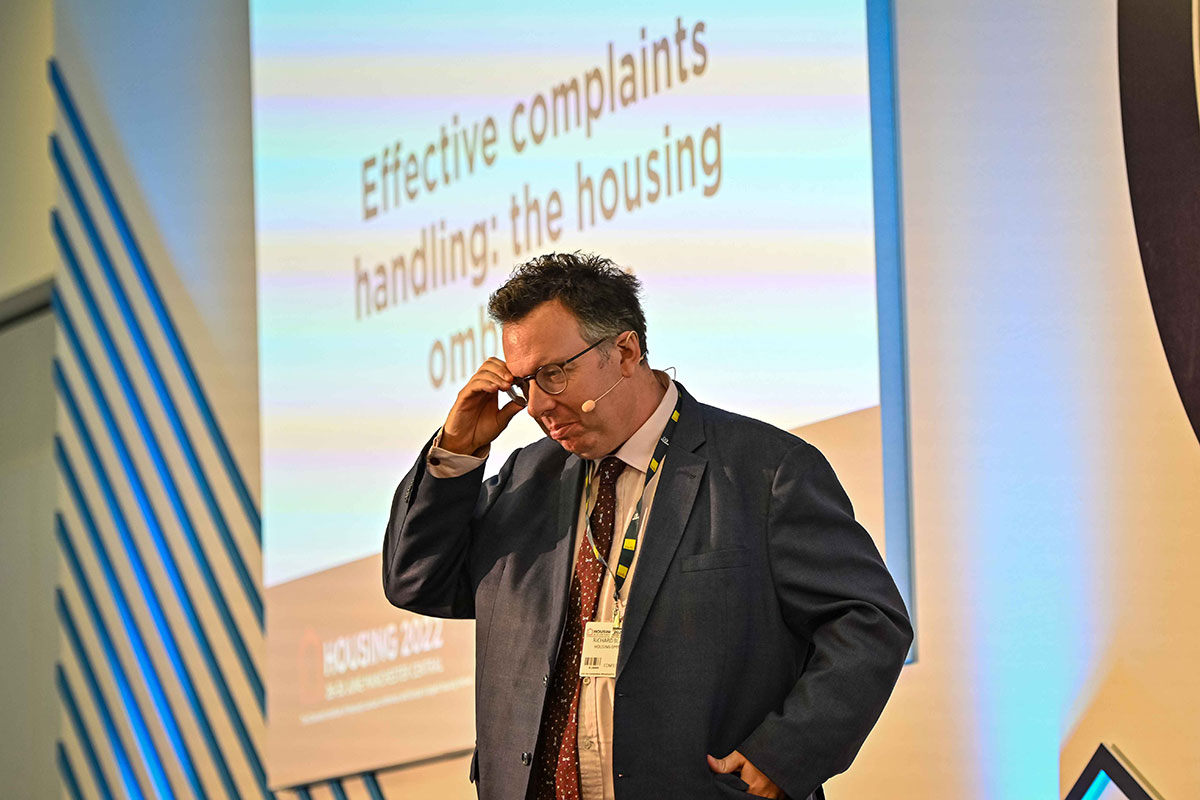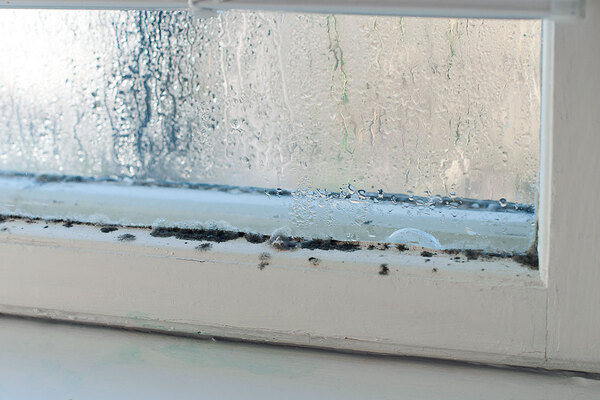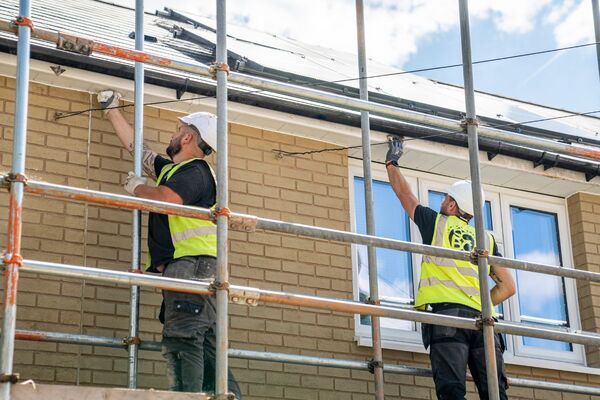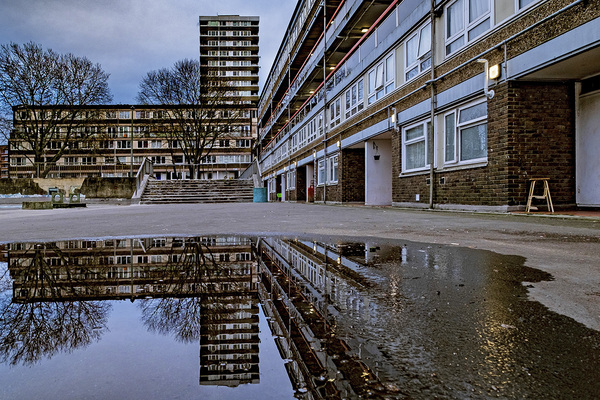You are viewing 1 of your 1 free articles

Vicky Smith is a solicitor at Devonshires
The sector should embrace the Housing Ombudsman’s approach as an opportunity, not a threat
The Housing Ombudsman has become more proactive in recent years, and that can prove uncomfortable for those in its crosshairs. But the sector should grasp the opportunity to learn from its transparent approach, writes Vicky Smith
Since the Housing Ombudsman was granted new powers in 2020, it has been highly proactive in its approach to the sector.
Readers of Inside Housing may be aware of the regular announcements coming from the ombudsman in support of its vision to improve residents’ lives and drive up the standards of landlords’ services through housing complaints.
It has been particularly active in the release of individual investigation reports, complaint-handling failure orders, insight reports and spotlight reports, seeking to promote learning in the sector
Engaging with the ombudsman can initially seem a daunting task. This is understandable, as in order to fulfil its duties it may require you to provide a great deal of information against a set deadline in response to any complaints. It can be a headache for many already stretched landlords.
Further, no landlord relishes the prospect of being ‘named and shamed’. To drive good practice across the sector and to provide insight for residents on the volume, category and outcome of claims about their landlord, the ombudsman publishes its decisions, naming individual landlords as well as publishing performance reports highlighting landlords that had five or more cases determined within a 12-month period.
The ombudsman’s latest quarterly report, which names the landlords concerned, shows an increase in cases coming into its formal remit of investigation. The report shows that 21 of the 32 complaint-handling failure orders made were complied with, with 11 cases of non-compliance, the highest number of non-compliance cases in a quarter to date.
“The direction of travel for landlords, however, is clear: there will be more external scrutiny, which will ultimately necessitate more checks and balances internally”
The increase in cases should not be viewed entirely as a failure of the sector, but also as an indication of the ombudsman getting into its stride, and the sector getting better at signposting residents to their complaints process and informing them of their ultimate right to take their complaints to the ombudsman.
It is important that landlords keep on top of the ombudsman’s requirements. In March 2022 the ombudsman updated and strengthened the Complaint Handling Code, requiring landlords, among other things, to self-assess against the code annually, provide more than one route of access to the complaints system and publicise the complaints process, Complaint Handling Code and Housing Ombudsman Scheme.
Landlords have until 1 October 2022 to become compliant against the strengthened Complaint Handling Code.
It is therefore more important than ever to listen and engage with the changes introduced by the ombudsman.
The ombudsman recognises that it too has more work to do in order to improve residents’ lives and landlords’ services. The ombudsman aims to establish a Centre for Learning to drive a positive complaints culture. While it recognises that it has never been more open and transparent, it acknowledges that there is more to do to ensure that residents understand the benefits of alternative dispute resolution. This is particularly relevant with the growth of ‘no win, no fee’ housing conditions claims.
The direction of travel for landlords, however, is clear: there will be more external scrutiny, which will ultimately necessitate more checks and balances internally. Yet, rather than viewing this increased scrutiny as a threat, I’d encourage the sector to embrace the transparent and open approach within which the ombudsman is now operating.
There is a real opportunity to work with the ombudsman to drive service improvements and use this as a catalyst for change. Anecdotally, I know that the ombudsman is in listening mode and genuinely wants to hear from landlords about how it can help them.
A good starting point for landlords looking to understand more would be the ombudsman’s insight reports, published quarterly. The reports provide insight into complaints data, a selection of case studies and key learning points. The ombudsman’s spotlight reports are also extremely helpful. First introduced in 2019, the spotlight reports seek to offer a deep dive into some of the most common issues identified through the complaints it has investigated and resolved.
“As well as signing up to receive updates from the ombudsman, I would encourage landlords to engage in any future calls for evidence”
The most recent reports have put the spotlight on damp and mould and landlords’ engagement with private freeholders and managing agents. It has also recently closed a call for evidence into noise-handling complaints, which will inform the basis of its next spotlight report.
We’ve had significant interest from landlords in seeking to understand these reports. The reports present a great opportunity for the sector to understand what best practice looks like. In particular, they give a thorough analysis of the issues and clear signposting around what should be done in response to strengthen and improve services.
As well as signing up to receive updates from the ombudsman, I would encourage landlords to engage in any future calls for evidence. A collaborative approach to learning will help the sector get to where it needs to be more quickly.
Taking a systematic approach to learning from each report across your organisation and collaboratively with others in the sector will enable you to engender best practice far more quickly than going it alone.
Finally, if you do find yourself in the ombudsman’s crosshairs, be sure not to panic. Communicate effectively with the ombudsman. If an order is made, ensure it is complied with. The role of complaint-handling is an integral part of a healthy landlord and tenant relationship. It should be remembered that the ombudsman is looking to effect positive change in order to improve the housing sector for all involved.
Vicky Smith, solicitor, Devonshires
Sign up for our legal and regulation newsletter
Already have an account? Click here to manage your newsletters












